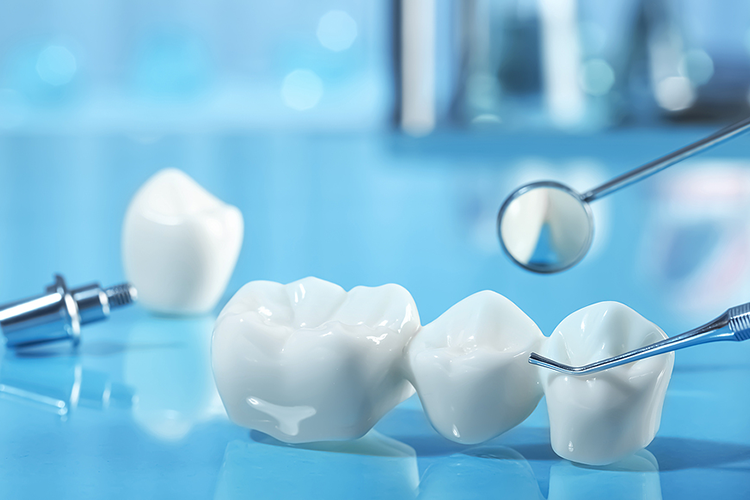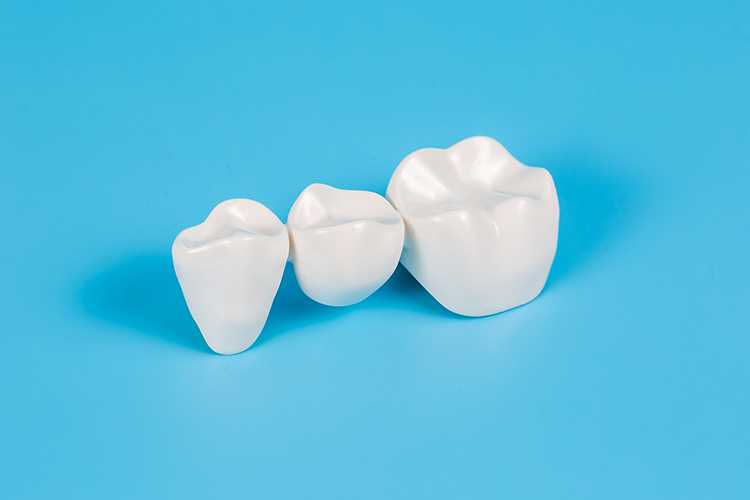Bridges in Tukwila, WA
If you're missing one or more teeth, you know how it can affect your confidence and ability to chew properly. But don't worry; dental bridges are here to save the day! Dental bridges are restorative dental treatments designed to replace missing teeth. They are called "bridges" because they literally bridge the gap left by one or more missing teeth.
These custom-made prosthetic devices consist of two main components: the pontic, which is a false tooth or teeth that fills the space where your natural tooth or teeth used to be, and abutment crowns on either side of the pontic. The abutment crowns serve as anchors and are placed over the healthy teeth adjacent to the gap.

How Do Dental Bridges Work?
To install a dental bridge, your dentist will first prepare the anchor teeth by removing a portion of their enamel. This is done to ensure a proper fit for the crowns that will hold the bridge in place. Impressions of your mouth are then taken to create custom-made pontics and crowns. Once ready, these pieces are carefully placed over the prepared anchor teeth, effectively bridging the gap left by missing teeth. The result is a natural-looking smile with restored functionality.
By redistributing forces during biting and chewing, dental bridges help prevent neighboring teeth from shifting out of position. They also provide support to maintain facial shape and restore speech clarity affected by missing teeth. They play an essential role in improving both aesthetics and oral function for individuals with missing teeth.
Caring for dental bridges is relatively simple but important for their longevity. Regular brushing twice a day with fluoride toothpaste along with flossing will help keep both the bridge itself and surrounding gums clean and healthy. It's also crucial to visit your dentist regularly for checkups to ensure that everything is in good condition.
Types of Dental Bridges
When it comes to dental bridges, there are several types available to suit different needs. Let's take a closer look at some of the most common types:
- Traditional Dental Bridge: This is the most common type of bridge and involves creating a crown for the tooth or implant on either side of the missing tooth, with a pontic (false tooth) in between.
- Cantilever Bridge: Unlike traditional bridges, cantilever bridges are used when there are adjacent teeth on only one side of the missing tooth or teeth.
- Maryland Bonded Bridge: Also known as resin-bonded bridges, these consist of porcelain or plastic teeth supported by a metal framework that is bonded to the backside of adjacent natural teeth.
- Implant-Supported Bridge: For those who have multiple missing teeth in a row, an implant-supported bridge may be recommended. This type involves placing implants into the jawbone where the missing teeth were and then attaching custom-made crowns and pontics to them.
- All-on-4 Bridge: This revolutionary option is designed for patients who have lost all their natural teeth on either their upper or lower arches. It involves using four strategically placed implants to support an entire arch bridge.
It's important to consult with our dentist to determine which type of dental bridge is best suited for your specific situation. Each type has its own advantages and considerations, so it's essential to make an informed decision based on your individual needs.

Benefits of Dental Bridges
Dental bridges offer several benefits that can greatly improve your oral health and overall well-being. They provide a long-term solution for missing teeth, restoring your smile, and improving your self-confidence. With a bridge in place, you don't have to worry about gaps in your teeth or feeling embarrassed when speaking or smiling.
In addition to aesthetic improvements, dental bridges also help with functionality. They restore the ability to chew properly and speak clearly, making it easier to enjoy your favorite foods and engage in conversations without any discomfort or difficulty.
Furthermore, dental bridges prevent other teeth from shifting out of position. When there is a gap due to missing teeth, neighboring teeth may start moving into the empty space over time. This can lead to bite problems and misalignment issues. By filling the gap with a bridge, you maintain proper alignment and minimize the risk of future complications.
Another advantage of dental bridges is their durability and longevity. With proper care and regular checkups with your dentist, they can last for many years, providing you with a reliable tooth replacement option.
If you are missing one or more teeth and want an effective solution that provides long-lasting results while enhancing both appearance and functionality, consider dental bridges! To learn more, call us at (425) 251-6044 or visit our office, Advanced Care Dental, at 16600 W Valley Hwy, Tukwila, WA 98188. We will be happy to guide you further.
Office Hours
MON - TUE9:00 am - 5:00 pm
WED10:00 am - 8:00 pm
THU9:00 am - 5:00 pm
FRI7:30 am - 4:00 pm
SAT9:00 am - 5:00 pm
SUNClosed
